Vicent Peset i Llorca [or Vicente Peset Llorca] (Sevilla, 8/10/1914 - Valencia, 24/5/1981)
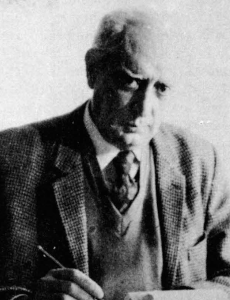
He was born in Seville, where his father, Juan Peset Aleixandre, held the chair of forensic medicine at the time. He studied medicine at the University of Valencia, while he also trained in the techniques of experimental work in his father's toxicology and forensic medicine laboratory. The result of these experiences, in addition to the work on blood transfusion that he carried out during the Civil War, was the book La transfusión de sangre (Blood transfusion), a widely distributed manual that was later reprinted.
Despite this career, the death of his father, who was shot in 1941 by Franco's regime, and the post-war situation made it almost impossible for him to continue his laboratory work, and he turned professionally towards psychiatry, a discipline he practised for a living. At the same time, however, he also showed a great vocation for the history of medicine, a discipline that had already been cultivated by other members of his family, such as Juan Bautista Peset Vidal (his great-grandfather) and Vicente Peset Cervera (his grandfather). Thus, his doctoral thesis was Nuevos datos sobre la psiquiatría española del siglo XIX (1943) (New data on 19th century Spanish psychiatry), in which both specialities were already united.
His historiographical research dealt mainly with the history of psychiatry (José Mª López Piñero and Juan A. Micó would bring together these works in a posthumous volume: Estudios históricos sobre la psiquiatría valenciana (Historical studies on Valencian psychiatry) and on doctors in the Valencian Enlightenment period, especially those who surrounded Gregorio Mayans, works that would give rise to books such as Gregori Mayans i la cultura de la Il-lustració (Gregori Mayans and the culture of the Enlightenment).
A man of great erudition and culture, he nevertheless lived on the fringes of official university activity (perhaps due to the aforementioned death of his father), but in spite of this he maintained friendships with many prominent figures in the academic sphere, such as the historians Laín Entralgo and López Piñero.
More biographic information
- Article in the Diccionari d'Historiografia Catalana
Donation
Vicente Peset Llorca donated his family archive, as well as his library (which was donated after his death by his brother Juan) to the Biblioteca Historicomédica, at that time located in the Faculty of Medicine and which had been promoted by José María López Piñero, a great friend of Vicente Peset himself. The great importance of this donation, due to its volume and quality, led to the naming of a room after him, and later the present library.
The donation is made up of books and booklets (almost five thousand records, with medical works from the 15th to the 20th century), the extensive collection of journals (around a hundred titles) and the large number of archival documents belonging to the Peset family (an important dynasty of Valencian doctors that began at the end of the 18th century).
Thus, in the collection we have research notes and drafts both by Peset Llorca (for example, those used in his work on Mayans) and by his ancestors, as well as correspondence, manuscripts and private documents of all kinds: contracts, baptismal certificates, death certificates, even petitions for pardon for his father Peset Aleixandre... All in all, a family archive containing information on the following members, among others:
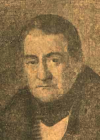 Mariano Peset de la Raga (Alpuente, 29/12/1780 – Valencia, 9/4/1850)
Mariano Peset de la Raga (Alpuente, 29/12/1780 – Valencia, 9/4/1850)
Great-great-grandfather of Vicente Peset Llorca and initiator of this saga of doctors. He studied Theology and later Medicine in Valencia, practising his profession in several towns in this province such as Gandía and Requena, obtaining years later the position of primary and main doctor in the General Hospital of Valencia. He was also a member of the Board of Health of this city and head of public health in the province.
In his Dissertación critico-médica he combated the theories of Louis Leroy's "curative medicine" (based on purges) and François Broussais' "physiological medicine" (a system known as "Brussism"). He also defended the contagious nature of cholera (a subject of debate at the time), although he attributed it to an airborne infection, in his work Treatise médico-chimique-physique.
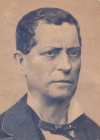 Juan Bautista Peset Vidal (Valencia, 7/3/1821 – Valencia, 27/6/1885)
Juan Bautista Peset Vidal (Valencia, 7/3/1821 – Valencia, 27/6/1885)
Son of Mariano Peset de la Raga, he was a professor of clinical medicine at the Faculty of Medicine in Valencia and also a highly reputed doctor, his private practice being the most important in the city for years.
In addition to the clinical field, where he wrote works such as Historia de las neurosis llamadas digestivas y en especial de la gastralgia (1869) (History of the so-called digestive neuroses and in particular of gastralgia), he was very active within the Instituto Médico Valenciano (an organisation of which he was president) in the field of public health, with works such as Lepra de la provincia de Valencia (1877) (Leprosy in the province of Valencia), Topografía médica de Valencia y su zona (1878) (Medical topography of Valencia and its area) and others on cholera, pulmonary tuberculosis, yellow fever, etc.
Other fields of study were psychiatry and forensic medicine, and even the history of medicine, to which he contributed with Bosquejo de la historia de la medicina de Valencia (1866) (Outline of the history of medicine in Valencia) and monographs on the doctors Andrés Piquer and Luis Collado (1878).
Initially sceptical about Koch's discovery of the choleric vibrio and Dr. Ferran's anti-cholera vaccination, he ended up being convinced by the latter, publicly adhering to the new microbiological theories shortly before he died, precisely, a victim of cholera.
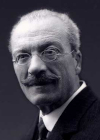 Vicent Peset i Cervera [o Vicente Peset Cervera] (Valencia, 8/4/1855 - Valencia, 21/3/1945)
Vicent Peset i Cervera [o Vicente Peset Cervera] (Valencia, 8/4/1855 - Valencia, 21/3/1945)
Son of Juan Bautista Peset Vidal, he was a famous pharmacologist, professor of Therapeutics at the University of Valencia, as well as a writer and translator of medical subjects.
Apart from outstanding works in the field of physiology and microbiology, such as La fermentación en fisiologia y patología (1880) (Fermentation in physiology and pathology) and Los habitantes del aire de Valencia (1885) (The inhabitants of Valencia's air), the most important part of his work was devoted to pharmacology, therapeutics and toxicology, with works such as Terapéutica (1906) (Therapeutics), considered the best Spanish manual on the subject at the time. This interest in the applications of chemistry and other scientific disciplines to medicine (he himself had also studied physico-chemical sciences at university) meant that he also dealt with the applications of electricity to therapeutics and diagnosis, as well as being one of the first Spaniards to work with X-rays, a few months after Roentgen's discovery.
Outside the academic sphere, he contributed to the creation of the Valencia Municipal Health Corps, with the Project for a public hygiene and municipal health laboratory (1881), as well as working for seven years as a chemical analyst for this city council. He also played a leading role in Jaume Ferran's anti-cholera vaccination campaign in Valencia in 1885, the first in the world to immunise a population against a bacterial disease.
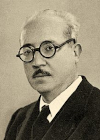 Joan Baptista Peset i Aleixandre [o Juan Bautista Peset Aleixandre] (Godella, 2/7/1886 – Paterna, 24/5/1941)
Joan Baptista Peset i Aleixandre [o Juan Bautista Peset Aleixandre] (Godella, 2/7/1886 – Paterna, 24/5/1941)
Son of Vicente Peset Cervera and brother of the veterinary surgeon Tomás Peset Aleixandre (with whom he jointly wrote some works). He studied Medicine, Science and Law, and thanks to a grant from the "Junta para la Ampliación de Estudios" he was able to train in German and French institutions, becoming one of the leading exponents of experimental or laboratory medicine in Spain.
After obtaining the chair of Legal Medicine and Toxicology in Seville, he returned to Valencia, where he held the chair of Legal Medicine, making it one of the main centres of this discipline at national level. He was also dean of the Faculty of Medicine and later rector of the University of Valencia. In addition to teaching, he directed the journal La Crónica Médica, was responsible for health at Valencia City Council, participated in various medical institutions such as the Royal Academy of Valencian Medicine and the Valencian Medical Institute and published a large number of works, mainly articles in the field of microchemistry applied to forensic medicine and "laboratory" medicine (immunology, bacteriology...).
A liberal politician, he was a member of the Republican Left and was a member of parliament in the 1936 elections for the Popular Front. After the Civil War, his political affiliation and his loyalty to the Republic led him to be imprisoned, tried and sentenced to death for "aiding the rebellion". Although a petition campaign was started asking for the commutation of his sentence (signed by important figures of the "new regime" such as the archbishop of Valencia), it was denied and Joan Peset was shot.
The works that make up the bequest bear the following holdings:
- HMED Fons Peset (books and booklets)
- HMED Revistes FP (journals)
- HMED Manuscrits (manuscripts and unpublished works; this latter holding being shared with works of different provenance)
Works at the Catalogue of the University of Valencia
Follow the links to find out which works we have in the University of Valencia libraries:
- Works in which Vicent Peset Llorca appears as an author
- Works in which the other members of the Peset family included in the donation appear as authors
- Works that deal with Vicent Peset Llorca or are related to his person
- Works that are related to or deal with the other members of the Peset family included in the donation
Bibliographic selection as author
Monographs
- La transfusión de sangre: (biología y técnica). Barcelona: Científico-Médica, 1943
- [Transcripció, notes i estudi preliminar] MAYANS Y SISCAR, G. Epistolario I, Mayans y los médicos. València: [Ajuntament d'Oliva], 1972
- Gregori Mayans i la cultura de la Il.lustració. Barcelona: Curial, 1975
- Estudios históricos sobre la psiquiatría valenciana. València: Alfons el Magnànim, 1987
Journal articles
- “Contribución al estudio toxicológico del formol con cuatro casos de envenenamiento”. Crónica médica. 1937, vol. 41, p. 141-155
- “Nuevos datos sobre la psiquiatría española del siglo XIX (Una ‘Patología psicológica’ de 1859)”. Gaceta médica española. 1950, v. 24, n. 6, p. 199-216
- “Sobre la psiquiatría española del XIX”. Archivos Iberoamericanos de Historia de la Medicina. 1950, v. 2, fasc. 2, p. 622-627
- “Terminología psiquiátrica usada en los Estados de la Corona de Aragón en la Baja Edad Media”. Archivo iberoamericano de historia de la medicina y antropología médica. 1954, v. 7, p. 431-442, 561-588; 1958, v. 10, p. 305-347; 1959, v. 11, p. 65-84
- “Andrés Piquer y la Psiquiatría de la Ilustración”. Archivo iberoamericano de historia de la medicina y antropología médica. 1957, v. 9, p. 433-439
- “Nuevos papeles del Dr. Andrés Piquer. I: Sobre la generación”. Clínica y laboratorio. 1959, v. 67, n. 396, p. 232-240
- “Nuevos papeles del Dr. Andrés Piquer. II: Higiene y cultivo del arroz”. Clínica y laboratorio. 1959, v. 68, n. 405, p. 434-437
- “Nuevos papeles del Dr. Andrés Piquer. III: Iatromecanismo”. Clínica y laboratorio. 1959, v. 73, n. 433, p. 317-320
- “Nuevos papeles del Dr. Andrés Piquer. IV: Hoja de méritos”. Clínica y laboratorio. 1963, v. 76, n. 450, p. 201-205
- “La Universidad de Valencia y la renovación científica española (1687-1727)”. Asclepio. 1964, v. 16, p. 214-231
- “Gregorio Mayans (1699-1781) y la historia de la medicina”. Cuadernos de Historia de la Medicina Española. 1965, v. 4, p. 3-53











